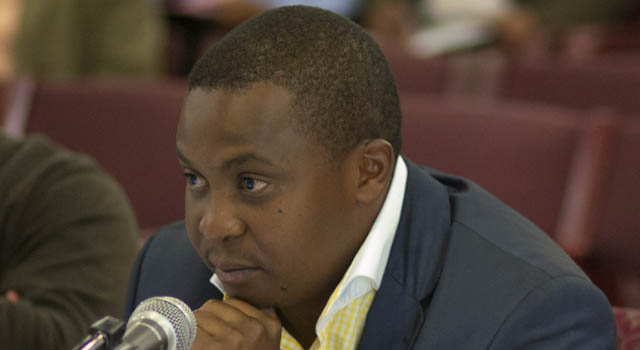
MTN reaffirmed on Wednesday that it is seeking 5MHz of spectrum between 2,01GHz and 2,015GHz to provide mobile broadband services using time-division duplexing technology.
But its rivals, Vodacom, Neotel and Cell C — along with would-be operator Smile Communications — used hearings at the Independent Communications Authority of South Africa (Icasa) on Wednesday to object to the application.
Neotel has also decided to oppose the application, but based on “deemed rights” granted in the 1996 Telecommunications Act related to access to 3G spectrum bands.
Neotel technical regulation specialist Peter Zimri said the operator wants clarity on its rights for access to 3G bands because it believes it has a right to access the 2,1GHz band as this is a “core band for 3G”.
Cell C regulatory affairs head Mothibi Ramusi said MTN’s application took the company “by surprise”. Ramusi argued that scarce spectrum must be “assigned in the public interest” and that, because the 2,1GHz band is “high-demand spectrum”, assigning it to MTN would give the operator an “unfair and unjustified competitive advantage over Cell C”.
Furthermore, Ramusi said Cell C has “previously been prejudiced in the assignment of spectrum” and that MTN’s application is “procedurally irregular” because the Electronic Communications Act states that spectrum assignment “must not prejudice other licensees”.
He said it’s important for Icasa to turn to “institutional memory” when making decisions about MTN’s request. “Spectrum assignment to date has entrenched the dominant operators’ position to Cell C’s detriment,” he said.
Cell C has spectrum in the 900MHz and 1,8GHz bands, but because its allocation in the 900MHz band is not contiguous, Ramusi said it requires more base stations than its competitors, along with “filters” to prevent interference with Neotel’s nearby CDMA spectrum.

In addition, Ramusi said MTN already has 5MHz in the 2,1GHz band and that with an additional 5MHz, the bigger operator could offer time-division duplex LTE services where Cell C would need to re-use existing spectrum resulting in a relatively poorer quality of service.
“Preferential awards to an already dominant operator without following proper procedure is not appropriate and undermines government’s developmental goals to provide broadband access to all by 2020,” Ramusi said.
Vodacom executive head of technical regulation Mortimer Hope said the 2,1GHz band is high-demand spectrum because Icasa has previously invoiced Vodacom for its allocation in that band using the “congested factor” in its calculations. This, Hope argued, suggests the band should be considered in high demand and be treated accordingly.
“Icasa is obliged to issue an invitation to apply before awarding spectrum for the remaining time-division duplex spectrum in the 3G band,” Hope said.
Smile Communications, which operates 4G/LTE networks in Uganda and Tanzania, argued that it has been awaiting the licensing of much-needed spectrum in South Africa since submitting an application in 2009, which Icasa is yet to process.
Thato Mahapa, Smile’s senior manager for legal and regulatory affairs, said Smile objects to the awarding of the spectrum for which MTN has applied because, if granted, the operator would have two-thirds of a 15MHz block in the 2,1GHz band.
Mahapa warned Icasa that if the spectrum is granted to MTN, it could prejudice other industry players. It said assigning the band would be “premature”.
“Smile reiterates its vehement objection to the haphazard allocation of critical spectrum,” Mahapa said.
MTN elected not to make a presentation at the public hearings. — (c) 2013 NewsCentral Media




